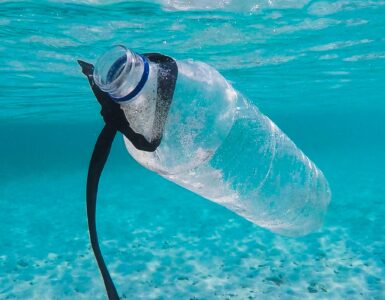A recent analysis by France’s ANSES (Agency for Food, Environmental and Occupational Health Safety) highlights unexpected microplastic contamination in beverages packaged in glass bottles.
The culprit of these microplastics in the glass bottled drinks could be the paint used on bottle caps, more specifically from the paint that covered them.
The researchers looked at microplastic contamination in glass-bottled drinks such as water, soda, iced tea, wine and beer, sold in France. The results were quite startling as the level of microplastics was found to be higher in glass bottles than in other containers.
Microplastics are tiny plastic particles that are less than 5 millimetres in size and are found almost everywhere, in oceans, rivers, soil, air, and even in the food and water we consume. Because of their small size and widespread presence, microplastics have become an environmental and public health issue.
These tiny contamination particles have been found in human blood, lungs, gut, faeces, and reproductive tissues like the placenta and testes.
Apart from humans, microplastics also impact marine animals and birds as they often mistake them for food, leading to health problems or death.

According to ANSES research, on average, in glass bottles of cola, there were around 100 microplastic particles per litre, which was five to 50 times lower in plastic bottles and cans. In the case of water, the level of microplastics was relatively low regardless of the container.
The colour of the microplastics closely matched the paint used on the bottle caps. Further, the investigation showed microscopic scratches likely caused by friction when the caps rubbed against each other during storage. This friction appeared to release tiny particles from the cap surface, suggesting it was the main source of the microplastics found in the drinks.
The study is not conclusive on whether the levels of microplastics found pose a health risk.
However, it has been suggested that manufacturers change the conditions in which the caps are stored before use, to avoid friction, or modify the composition of the paint used on the caps.






Add comment